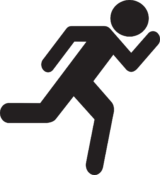What Happens During a Doctor’s Visit for a Head Injury? 🤕
Head injuries can be daunting, whether from a minor bump or a more serious accident. Knowing what to expect during a doctor’s visit can ease anxiety and prepare you for the next steps in your recovery. This guide will walk you through the typical process, ensuring you feel informed and empowered.
Table of Contents
1. Introduction
2. Initial Assessment 🩺
3. Diagnostic Tests 🔬
4. Treatment Plan 💊
5. Follow-Up Care 📅
6. Conclusion
7. FAQ
Introduction
A visit to the doctor for a head injury can be unnerving, but understanding the process can make it less intimidating. Whether it’s a concussion from sports or a fall at home, timely medical attention is crucial. Let’s dive into what you can expect during this visit.
Initial Assessment 🩺
The first step is the initial assessment. This phase is critical to determine the severity of the injury. Here’s what typically happens:
1. Medical History: The doctor will ask about the incident, your symptoms, and any previous head injuries. This helps in understanding the context and potential complications.
2. Physical Examination: Expect a thorough check-up. The doctor will evaluate your cognitive abilities, balance, coordination, and reflexes. They might ask questions to assess memory, attention, and concentration, such as recalling recent events or counting backward.
Diagnostic Tests 🔬
Depending on the initial findings, your doctor may recommend further diagnostic tests to ensure a comprehensive understanding of your injury:
1. CT Scan: This imaging test helps identify bleeding, swelling, or fractures in the skull. It’s quick and particularly useful for detecting serious injuries.
2. MRI: If more detailed images are needed, an MRI might be ordered. It’s more in-depth than a CT scan and can pinpoint subtle injuries.
Treatment Plan 💊
Once the diagnosis is clear, the doctor will discuss a personalized treatment plan with you:
1. Rest: Often the primary recommendation is rest. Both physical and cognitive rest are crucial to allow the brain to heal.
2. Medication: Pain relief may be prescribed, but it’s important to avoid certain medications like aspirin that could increase bleeding risk.
3. Monitoring: You may need someone to monitor your symptoms closely, especially during the first 24-48 hours after the injury.
Follow-Up Care 📅
Recovery from a head injury doesn’t end with the initial visit. Follow-up care is essential to ensure complete healing:
1. Regular Check-ups: Your doctor will schedule follow-up appointments to monitor your recovery and adjust the treatment plan as needed.
2. Rehabilitation: In some cases, physical therapy or cognitive rehabilitation may be recommended to help regain strength and mental acuity.
Conclusion
Understanding the steps involved in a doctor’s visit for a head injury can help reduce anxiety and ensure you get the care you need. Remember, it’s always better to err on the side of caution and seek medical advice promptly. Your health is worth it! 💪
FAQ
Q: How long should I rest after a head injury?
A: Rest is critical, especially in the first few days. Your doctor will provide specific guidelines based on your condition.
Q: Can I drive after a head injury?
A: It’s advisable to avoid driving until your doctor confirms it’s safe, as cognitive functions might be impaired.
Q: What symptoms should prompt an immediate return to the doctor?
A: If you experience worsening headaches, repeated vomiting, seizures, or confusion, seek immediate medical attention.
Q: Are there long-term effects of head injuries?
A: While many recover fully, some may experience lingering symptoms. Regular follow-ups with your doctor can help manage any ongoing issues.
Q: Is it safe to sleep after a head injury?
A: Yes, but someone should monitor you for any changes in condition. Follow your doctor’s advice on rest and activity levels.

